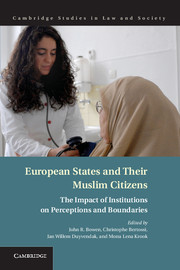Political Systems
At the end of the Cold War, the idea spread that liberal democracy was going to take over the world. In reality, authoritarian regimes have resisted, and political systems remain varied.


The Legacy of the Great War: Sovereign States, Globalization and Regionalism
The Great War has shaped many 20th century practices and norms.

Europe's Place in the World: from 1914 to 2014
The first wave of globalization in the 20th century triggered deep upheaval of the organization of power and an overall depreciation of European nations.

1914–2014: Nation and Nationalism
The increasing militarism prior to the Great War had its roots in national beliefs and ideologies constructed during the 19th century in European countries.

Turkey: the Sèvres Syndrome, or the Interminable War
For the Turks, the Treaty of Sèvres symbolizes the liquidation of the Empire and the carving up of Turkey by outside forces.

Challenges ahead for Global Europe
The year ahead will be critical in determining the European Union’s standing on the global stage.
Political and Economic Effects of Qaddafi's Death on Chad
On 24 August 2011, President Idriss Déby Itno of Chad recognised the National Transitional Council (NTC) as the only legitimate authority in Libya. Until then, the Chadian president had been a firm ally of the Guide of the Great Jahamiriya, President Qaddafi of Libya. Déby had sustained his long-time friend and helper with military equipment and soldiers from Chad from the beginning of the uprisings.
Labor Migration in the State of Qatar: Policy Making and Governance
The discovery of petroleum wealth in the middle of the last century completely reconfigured the political economy of Qatar. Small local population size and low levels of labor force participation pushed Qatar to seek alternate sources of labor to meet burgeoning labor demands.
Urbanization and Mobility in China: New Patterns and Intermodal Connections
Chinese cities are getting bigger and are also growing into each other. To ensure that the rapidly increasing number of urban residents have access to adequate transportation not only requires increased investment in transportation, but also careful deliberation to allow an optimal tradeoff between different modes of transport as well as a coordinated approach to land development and transport development.

States' Power in the European Union
On an initiative of the IP-Journal of the German Council of Foreign Relations (DGAP), the Study Committee for Franco-German Relations (Cerfa) of the French Institute of International Relations (IFRI) and the Polish Institute of International Affairs (PISM) are regularly publishing short contributions on a common subject, written by three experts of these institutes. The purpose of these “Weimar Triangle Analyses” is to give the French, Polish and German views on central questions of European politics and European integration.
Support independent French research
Ifri, a foundation recognized as being of public utility, relies largely on private donors – companies and individuals – to guarantee its sustainability and intellectual independence. Through their funding, donors help maintain the Institute's position among the world's leading think tanks. By benefiting from an internationally recognized network and expertise, donors refine their understanding of geopolitical risk and its consequences on global politics and the economy. In 2024, Ifri will support more than 70 French and foreign companies and organizations.








